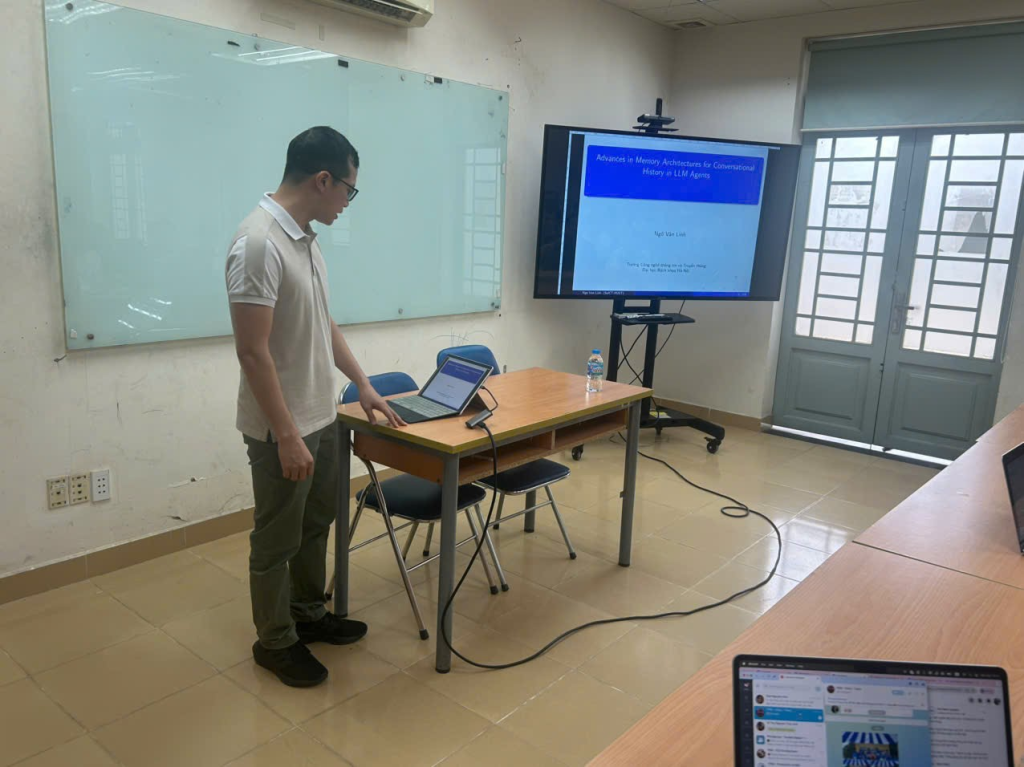The seminar room at the Faculty of Computer Science and Engineering (CSE), Ho Chi Minh City University of Technology (HCMUT), was filled with anticipation as Dr. Ngô Văn Linh from Hanoi University of Science and Technology took the stage to present his talk titled “Advances in Memory Architectures for Conversational History in LLM Agents.”
Over the course of an engaging hour, Dr. Linh captivated the audience with his deep insights into how large language models can be equipped with long-term memory. He explained that while today’s LLMs excel at reasoning and generation, they still struggle to retain context across sessions — a challenge his research directly addresses.

Dr. Linh’s presentation.
Through detailed slides, he introduced several cutting-edge approaches such as Segmentation and Compression (SeCom), Reflective Memory Management, Dynamic Tree Memory, and Graph Memory. He also discussed newer architectures like HippoRAG2 and MemGAS, which integrate structured memory into the reasoning process itself.
Students and researchers listened intently as Dr. Linh described how these systems could make AI agents more coherent, consistent, and truly personalized over time. His explanation of how graph-based retrieval enables agents to “recall and reason” across past interactions drew particular interest from the URA team, whose ongoing work in retrieval-based AI closely aligns with these ideas.
Following Dr. Linh’s presentation, the seminar continued with Dr. Tony Nguyen, Research Fellow at Griffith University’s School of Applied Psychology in Australia. Dr. Nguyen offered a different yet equally compelling perspective — exploring how AI can support mental health and cognitive systems at a national level.
His talk highlighted Griffith University’s ongoing initiatives to design intelligent infrastructures that promote mental wellbeing, ensure ethical data stewardship, and integrate AI into community-centered healthcare systems across Australia.
Although distinct in domain, both speakers shared a common vision: building intelligent systems that learn, remember, and serve people responsibly.
The URA research group extends sincere appreciation to both Dr. Ngô Văn Linh and Dr. Tony Nguyen for their inspiring talks, and looks forward to future opportunities for collaboration with Griffith University on cognitive and health-related AI systems.